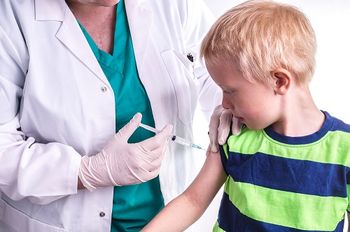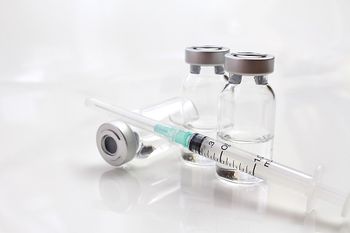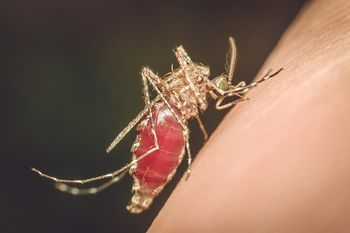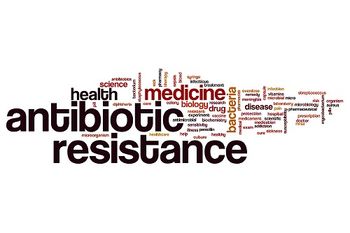
A packaging company in Waco, Texas, has recalled thousands of pounds of brisket out of caution after finding an uncommon strain of Esherichia coli that could cause food poisoning.

A packaging company in Waco, Texas, has recalled thousands of pounds of brisket out of caution after finding an uncommon strain of Esherichia coli that could cause food poisoning.

WHO representatives warn that a “flare-up” of TB/HIV coinfections coupled with high rates of drug-resistant tuberculosis can threaten progress made towards the elimination of TB.

The WHO recently revised its guidelines on progestogen-only injectable contraceptives in light of new evidence that their usage may involve a higher risk of contracting HIV.

Robin Jump, MD, PhD, discussed the challenges associated with isolation precautions in long-term care settings, specifically nursing homes during her presentation at the SHEA Spring 2017 Conference on March 30, 2017.

The US Food and Drug Administration just approved indications for two hepatitis C drugs to be used in pediatric patients.

Sometimes the best surveillance tools are found in the gutter, at least according to a new study.

Top-line results of a phase 3 clinical study show that omadacycline met all US Food and Drug Administration primary and secondary endpoints and European Medicines Agency co-primary endpoints.

At the SHEA Spring 2017 Conference on March 30, 2017, David P. Calfee, MD, MS, discussed the role that the environment plays in transmission of healthcare-associated infections, and why cleaning and disinfection measures need to be improved to reduce these infections.

Researchers from the Graduate Institute of Clinical Medical Science have established a potential link between hepatitis C virus and cataract development.

Research coming in from the University of Texas Health Science Center at Houston shows that when it comes to treating those with C. difficile, frozen and freeze-dried products for Fecal Microbiota Transplantation are nearly as effective as fresh product.

In a new study, Centers for Disease Control and Prevention (CDC) researchers have found that getting the flu shot reduces the risk of influenza-associated pediatric deaths.

This week’s Public Health News Watch highlights initiatives taking place this week in celebration of National Public Health Week, as well as two new pieces of legislation being considered in Congress that could impact food safety in the country and healthcare, in general.

News on Heliobacter pylori, Zika, Clostridium difficile, Powassan virus, and influenza make up the top 5 news articles from Contagion® in March 2017.

The Centers for Disease Control and Prevention (CDC) recently reported that they are seeing between 30 to 40 new cases of Zika virus in pregnant women in the United States each week.

Patient advocate Liz Kruvand brought a fresh perspective to the SHEA Spring 2017 Conference when she discussed her own trials and tribulations with infection prevention in the pediatric hospital setting.

UCL scientists have found that MRI scans can be used as a way to identify HIV persistence in the brain even when it is controlled by treatment efforts.

Rebekah Moehring, MD, MPH, shared strategies for building internal capacity to meet infection prevention goals in resource-limited settings at the SHEA Spring 2017 Conference on March 29, 2017.

During a recent webcast lecture, Hana Golding, PhD from the US Food and Drug Administration described new ways to evaluate safety and effectiveness of vaccine adjuvants.

At the Society for Healthcare Epidemiology of America (SHEA) Spring 2017 Conference, Nimalie Stone, MD, MS, Team Lead, LTC, Division of Healthcare Quality Promotion at the Centers for Disease Control and Prevention (CDC), discussed infection prevention and control programs in nursing homes across the United States.

On March 30, 2017, at the SHEA Spring 2017 Conference, Thomas Sandora, MD, MPH, shared some tips regarding ways to manage movement outside of the room for patients who are on contact precautions.

Health officials in Florida declare that they are better prepared for a potential outbreak in their state as Zika vaccinations have begun in a multi-site Phase II/IIb clinical trial of VRC705 in areas of endemic Zika transmission throughout the world.

In case you missed them, here are our top 5 articles for the week of March 26, 2017.

On March 30, 2017, at the SHEA Spring 2017 Conference, Matt Linam, MD, MS, discussed strategies to prevent healthcare workers from spreading healthcare-associated infections (HAIs).

On March 30, 2017, plenary speaker Matthew Kreuter, PhD, MPH, provided SHEA Spring 2017 Conference attendees with insight on how behavior change strategies play a part in infection prevention in hospital settings.

Researchers suggest that patients with eczema should request that their flu shots be administered intramuscularly and not intradermally.

Recent research has found that a surprising drug combo might be the key to fighting multidrug-resistant bacteria.

New research shows that continuation of statins among patients Staphylococcus aureus bacteremia who were receiving the therapy before infection significantly lowered the risk of 30-day mortality.

At the SHEA Spring 2017 Conference, Heather S. Reisinger, PhD, MAA, discussed the importance of including patients in healthcare-associated infection (HAI)-prevention strategies.

Sara Cosgrove, MD, MS, current president of the Society for Healthcare Epidemiology of America (SHEA), painted a picture of the new landscape of antibiotic stewardship in the Opening Plenary of the 2017 SHEA Spring Conference held in St. Louis, Missouri.

Researchers in China have discovered a troubling case of the presence of a variant of the multidrug-resistant gene MCR-1 in a common strain of Salmonella in a healthy patient.